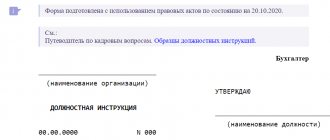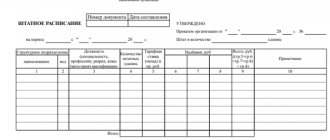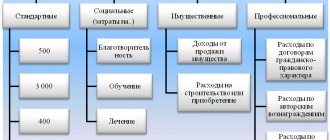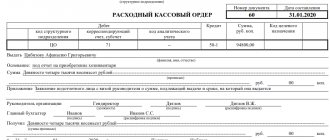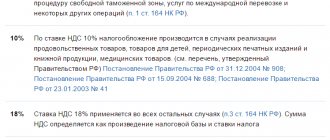What place does the general director occupy in the management of the joint-stock company?
General Director (director) is the sole executive body of the joint-stock company in accordance with clause 1 of Art. 69 of the Law “On Joint Stock Companies” dated December 26, 1995 No. 208-FZ (hereinafter referred to as Law No. 208).
It can work independently or (if provided for by the charter) be subordinate to the board or directorate (this is the name of the collegial executive body of the joint-stock company).
The essence of the powers of the executive body is that it implements the decisions of the general meeting of shareholders and the board of directors, resolves daily pressing issues, and also represents the company in external relations. To represent the interests of the company, the director does not need a power of attorney.
Conclusion! The general director of a joint stock company is the sole executive body, which can act independently, or perhaps with the board or directorate.
Note! The law does not prohibit a person in the position in question from having the status of an individual entrepreneur.
The powers of the general director can be controlled by:
- shareholders and board of directors (Article 69 of Law No. 208);
Important! The executive bodies report to the board of directors (supervisory board) of the company and the general meeting of shareholders.
- Audit Commission (Article 85 of Law No. 208);
- auditor (Article 86 of Law No. 208).
All of the above bodies may at any time demand the convening of an extraordinary general meeting of shareholders, which has the right to assess the activities of the general director and make a decision, up to and including his dismissal (clause 1, article 55 of law No. 208).
The general director of the LLC acts on the basis of what
Commercial specialized centers today offer their patients a variety of methods for removing fungus on the feet and nails. The main disadvantage in their case is the cost. The price of fungal removal procedures is 50-70 thousand rubles, which is clearly not affordable for everyone.
Today, Candidate of Medical Sciences (Russia), Doctor of Medicine and doctor of the highest category (USA) Alexander Myasnikov will tell you how modern advances in medicine make it possible to get rid of such a dangerous and unpleasant disease as foot and nail fungus in 1 month, at home.
How and who appoints a director of a joint-stock company
As a general rule, the formation of the executive bodies of the company is carried out by decision of the general meeting of shareholders (subclause 8, clause 1, article 48, clause 3, article 69 of law No. 208).
Any shareholder or several shareholders who collectively own at least 2% of voting shares can nominate a candidate for the position of general director (Clause 1, Article 53 of Law No. 208). In this case, such a proposal must be included on the agenda of the annual general meeting of shareholders no later than 30 days after the end of the reporting year (the charter may provide for a longer period).
The General Meeting is valid (has a quorum) if it was attended by shareholders who collectively own more than half the votes of the outstanding voting shares (minimum quorum - 50% of votes + 1 vote). Decisions are made by a majority vote (Clause 2, Article 49 of Law No. 208). All issues brought up for discussion and decisions made on them are recorded in the minutes. For more information on the procedure for holding a meeting, see the material “What is the procedure for holding a meeting of shareholders?”
However, in order to accurately determine who appoints the director of a joint stock company, you should carefully study the charter.
Note! The company's charter may place the issue of appointing a general director within the competence of the board of directors (supervisory board).
The procedure for nominating a candidate in this case is not defined by law. According to paragraph 1 of Art. 68 of Law No. 208, provisions establishing such a procedure may be provided for by the charter or internal document of the company (for example, regulations of the board of directors).
Acts on the basis of the charter
1. The sole executive body of the company (general director, president and others) is elected by the general meeting of the company’s participants for a period determined by the company’s charter, if the company’s charter does not include the resolution of these issues within the competence of the board of directors (supervisory board) of the company. The sole executive body of the company may also be elected not from among its participants.
In the absence of such consent or subsequent approval of the relevant transaction, it may be challenged by the persons specified in paragraph one of paragraph 4 of Article 46 of this Federal Law, in the manner and on the grounds established by paragraph 1 of Article 174 of the Civil Code of the Russian Federation.
On what basis does the director of the JSC act?
An employment contract is concluded with the general director of the joint-stock company, elected to the position by the meeting of shareholders or the board of directors.
Who will sign this document on the part of the employer is decided at the time of election of the official and is indicated in the minutes of the general meeting of shareholders (or the minutes of the meeting of the board of directors). Also, at the same time, the issue of the terms of the employment contract is resolved: duration, scope of powers, etc. In practice, the contract is often signed by one of the shareholders, and the text of the contract is drawn up as an appendix to the minutes.
Then 2 orders are issued, both of them are signed by the director both as an employer and as an employee familiar with the order (letter of Rostrud dated September 22, 2010 No. 2894-6-1):
- Order on taking office.
Created on behalf of the director to confirm the fact of election. The basis is, for example, the minutes of the general meeting of shareholders, by decision of which a director was appointed.
- The order of acceptance to work.
It is drawn up according to the T-1 form (Resolution of the State Statistics Committee of the Russian Federation dated January 5, 2004 No. 1) or according to one independently developed by the company. The order determines the regime, nature of work and salary. The basis is an employment contract.
Note! When it is necessary to indicate in the text of the agreement on what basis the general director of the joint-stock company acts, then they write: on the basis of the charter.
Example: “Romashka LLC, represented by General Director Artem Aleksandrovich Semenov, acting on the basis of the Charter...”
Director and general based on what documents
List of messages IP/Host: 81.9.54. gene action dir. based on an order or charter? Please tell me, when changing the general director, in the prescribed manner through the Federal Tax Service, in form 14001, the legal successor when concluding contracts, what should he indicate: “...acts on the basis of an order...” or “... acts on the basis of the charter...”? Thanks #1 IP/Host: 80.80.111. Re: action of the gene. dir. based on an order or charter? CHARTERS #2 IP/Host: 81.9.54. Re: action of the gene. dir. based on an order or charter? Thank you, where is this provision written down? #3 IP/Host: 81.9.54. Re: Re: action of the gene. dir. based on an order or charter? The problem is that our organization’s lawyer claims the opposite #4 IP/Host: 80.80.111. Re: action of the gene. dir. based on an order or charter? Do you have a municipal unitary enterprise, state unitary enterprise? government agency? #5 IP/Host: 81.9.54. Re: Re: action of the gene. dir.
Read more: Act of return of residential premises under a lease agreement
Administrative responsibility Administrative responsibility is assigned to both the legal entity and the general director of the LLC. This type of violation is established by the Code of Administrative Offenses or the laws of the constituent entities of the Russian Federation. Depending on the degree of the administrative offense, the following penalties are imposed:
Powers of the General Director of the JSC
The powers of the General Director are confirmed by the following documents (clause 3 of Article 69 of Law No. 208):
- Law No. 208;
- legal acts of the Russian Federation;
- resolution on appointment (the decision may be contained in the minutes of the general meeting of shareholders or the meeting of the board of directors - depending on who has the authority to appoint a director)
- employment contract.
Typically, the competence of this official includes:
- operational management of the company's activities;
- organization of accounting and reporting;
- submission of an annual report and balance sheet to the board of directors for consideration;
- organizing the execution of decisions of the general meeting of shareholders and the board of directors;
- approval of the staffing table;
- disposal of company property;
- transactions;
- issuance of powers of attorney;
- opening bank accounts;
- issuance of orders;
- concluding employment contracts with employees;
- approval of instructions, local acts and other internal documents;
- performing other functions necessary to achieve the goals of the company and ensure its normal operation.
If the management of a company is carried out simultaneously by a sole and collegial body, then the director also performs the functions of the chairman of the board (or directorate).
Do you want to know how to set the term of office of a JSC director? The answer is provided by a ready-made solution from the ConsultantPlus system. To study it and many other analytical materials, judicial practice and always current versions of laws, you can either obtain free (but temporary) access, or order the price list of the ConsultantPlus system and connect it on a permanent basis.
Representation of interests of JSC
How to confirm to a counterparty, government agency representative, etc. the right to act without a power of attorney on behalf of the company? In such cases, the director of the JSC presents a certified extract from the Unified State Register of Legal Entities or an order of appointment to the position.
General provisions
In accordance with Article 40 of Federal Law No. 14-FZ dated 02/08/98, the general director is the executive body of the organization. He has the right on her behalf:
- Enter into civil legal relations with individuals or legal entities.
- Perform legal actions.
- Represent interests, including in controversial situations.
- Be a representative in court.
- Act without a power of attorney.
The manager has full authority to distribute rights and bear the responsibilities of the enterprise. The founder does not have such powers. Its main task is to pay for the share in the authorized capital of the company. He makes decisions at the local level: determines the size of the authorized capital, approves the charter, etc.
But the powers of the head of the organization are vested in him in two situations:
- The general director and the sole founder of the organization are one person.
- A power of attorney has been issued.
Under these conditions, the founder acts on the basis of one of the documents:
- employment contract;
- powers of attorney.
Responsibility of the JSC director
The Labor Code of the Russian Federation (hereinafter referred to as the Labor Code) provides for a special norm - Art. 277, on the basis of which the general director bears full financial responsibility for direct actual damage caused to the company.
Also, in a number of cases, the head of the organization compensates the organization for losses caused by his guilty actions. One of these cases (see the resolution of the Plenum of the Supreme Court of the Russian Federation “On some issues...” dated 06/02/2015 No. 21) is given in Art. 71 of Law No. 208.
According to this norm, the sole executive body of the company must act in the interests of the company, exercise its rights and fulfill its obligations in relation to the company in good faith and reasonably. In this case, the head of the joint-stock company is responsible for:
- before the company for losses caused to it by his guilty actions (inaction);
- before the company or shareholders for losses caused by his guilty actions (inaction) that violate the procedure for acquiring shares.
The company itself or the shareholder has the right to go to court with a claim for compensation for losses caused. Moreover, in the first case there is a limitation: a claim will be accepted only from a shareholder or shareholders who collectively own at least 1% of the outstanding ordinary shares.
When determining the grounds and extent of the manager’s liability, ordinary business conditions and other circumstances relevant to the case must be taken into account.
Note! In certain paragraphs 4 of Art. 71 of Law No. 208 in cases the director may be jointly and severally liable together with members of the board of directors and members of the collegial executive body.
We recommend reading useful judicial practice on holding the director of a joint stock company liable for losses in the ConsultantPlus system. To get acquainted with the practice, you will need access to the ConsultantPlus system (to connect to the system, order a price list) or temporary access for 2 days.
How are the powers of a JSC director limited?
Measures to limit the powers of the general director must be provided for in the charter of the joint-stock company.
Approval of transactions by decision of the general meeting of shareholders and the board of directors of the company
Transactions must be approved in the following cases:
- if there is an interest in the company completing a transaction (Article 81 of Law No. 208);
- when the transaction is large (Article 78 of Law No. 208);
- if the charter provides for such a need (Article 69 of Law No. 208).
For example, due to the manager’s violation of the requirements of the charter and legislation when completing a transaction for the purchase and sale of non-residential premises, the company had to go through the court to demand that the contract be declared invalid. The director was obliged, before concluding the contract, to submit a report on the assessment of the alienated property for consideration by the board of directors, and then send the decision adopted by the board to the ministry for verification (resolution of the Presidium of the St. Petersburg City Court dated 06/01/2016 in case No. 44g-56/16).
Expanding the competence of the board of directors in the company's charter.
In fact, the duties of the director include everything that does not fall within the powers of higher authorities. The list of issues on which decisions are made by the general meeting is provided for by Law No. 208 and is exhaustive. But it is possible to expand the powers of the board of directors. For example, assign pre-approval to:
- transactions aimed at issuing and receiving loans, credits and guarantees by the company;
- transactions over a certain amount;
- approval of key employees;
- concluding employment contracts with employees whose annual income exceeds a certain amount.
How to renew the powers of a JSC director
The extension of the powers of the general director of a joint-stock company occurs by adopting one of the following decisions at the next meeting of shareholders:
- on the formation of new executive bodies;
- transfer of powers of the sole executive body to the management company.
If a force majeure situation occurs, for example, the postponement of the next meeting due to the coronavirus pandemic, then the term of office of the manager is extended until the said decisions are made (Clause 3, Article 69 of Law No. 208).
Read about the procedure for extending powers in the article “How to properly draw up personnel documents when extending the powers of the General Director?”

